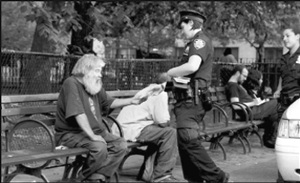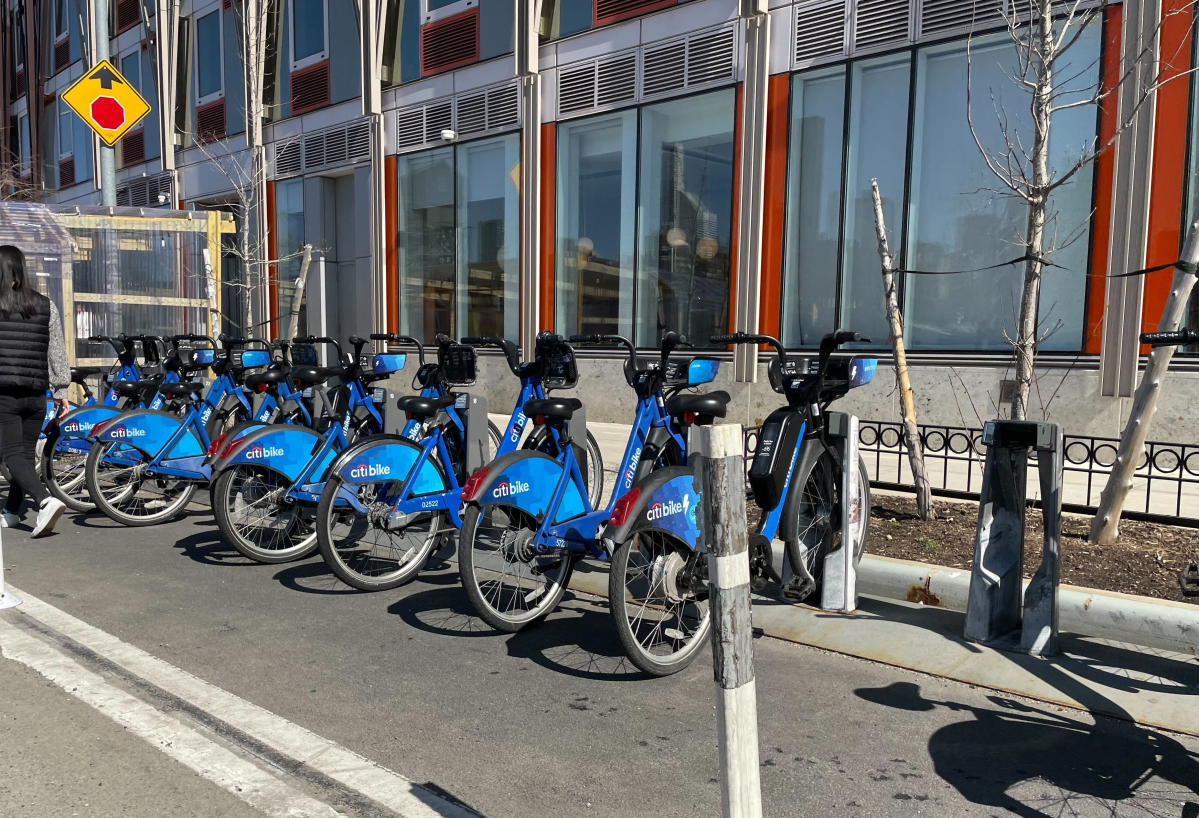By Lorcan Otway
On Friday afternoon two weeks ago, as often happens, Lieutenant Corcoran told a drinker to get out of Tompkins Square Park. And Carl Lee, ever the gentleman, complied with humor and a genteel wit.
Who is Carl? Carl was born in a different world, the New York of 1946 — the last days of the waterfront of Eugene O’Neill’s “Anna Christie,” the world of bargies and a community that lived in sight of the city but a world away.
As Carl tells it, his mother had a hard menopause, and in order to survive, his father retreated to a job on a trap-rock scow, a barge towed from up the Hudson River to an anchorage off Staten Island. Carl was then the sole recipient of his mother’s temper, so, in an act of kindness, his father took him, just before puberty, to live in the aft cabin of a scow. They were part of a community of a few thousand deckhands living in a floating village anchored off the Narrows. One can still see barges moored at Robins Reef, in the lee of the lighthouse, just before the ferryboat reaches Staten Island.
“My father took some two-by-fours and made a bunk for me above his,” Carl recalled. “I had a porthole, it was a beautiful view. I became quite a seaman; I might not have been able to splice a hawser, but I was a good sailor.”
He and his father worked, as did the other deckhands of the scows, breaking ice off the lines and bending stiff lines, salting the decks and sweating in the summers.
“I lived the life before the mast, so to speak,” he said, though adding that they had no actual mast.
He suffered through puberty, gazing at the city from the island of scows, which bumped against each other at the anchorage, separated by truck-tire fenders. On occasion, he and his father went ashore in a rubber dinghy. In the winter they had a Franklin coal stove, but often it gave too much heat, so they cooked over two hand-pumped gas Primus stoves.
“The company even gave us an icebox, but it was no good to us. They did not give us ice!” Carl said.
Rain, fog, sleet and storm, fair weather or foul, they worked the scow, living on the end of a tugboat’s towline or anchored in the upper river or lower harbor around the stake boat, permanently chained to the anchorage — the center of the scow sailors’ community.
Then one day, that world died. The tugboat companies tore the cabins off the scows and had their own crews take over. And so, the 1950s turned into the 1960s, and there was no place for the scow men of New York.
As Carl sat on the bench, from his car Lieutenant Corcoran commented on his long hair.
“Yes, you are right, I do need a hair cut,” Carl responded. “Thank you for the concern. … I will get a haircut. … Yes, I will not lie to you, I am drunk. I hope you only give me a ticket, as I don’t have my ID with me today. I have to leave the park, as well? Well, I suppose I do if I need to get a haircut. … So, I will leave…and rape a barber.”
This brought laughter to two police officers standing outside the car. From where I was, I could not see Lieutenant Corcoran’s response. Carl rose and walked slowly out of the park. Few in our neighborhood know where his journey started.
thevillager.com




































